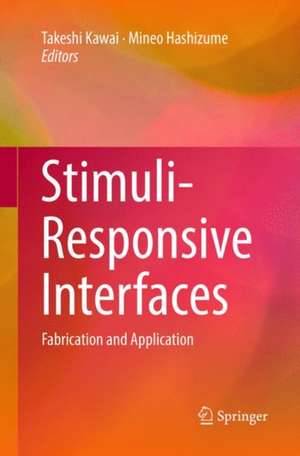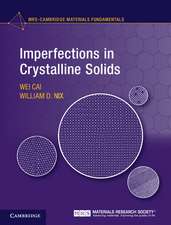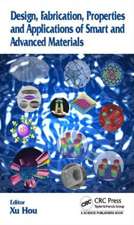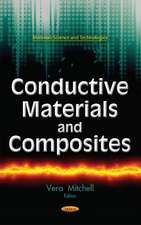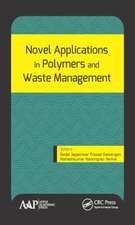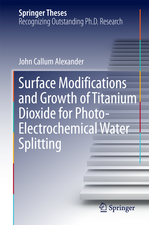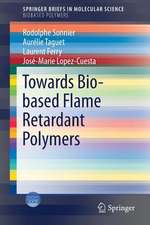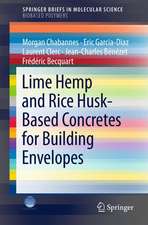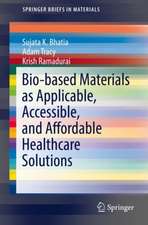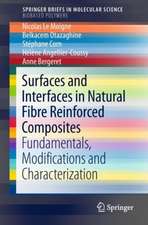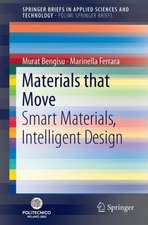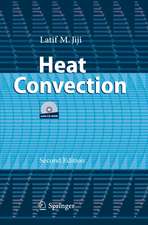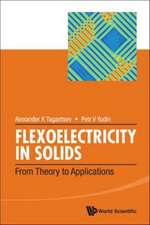Stimuli-Responsive Interfaces: Fabrication and Application
Editat de Takeshi Kawai, Mineo Hashizumeen Limba Engleză Paperback – 29 iun 2018
| Toate formatele și edițiile | Preț | Express |
|---|---|---|
| Paperback (1) | 641.71 lei 6-8 săpt. | |
| Springer Nature Singapore – 29 iun 2018 | 641.71 lei 6-8 săpt. | |
| Hardback (1) | 648.05 lei 6-8 săpt. | |
| Springer Nature Singapore – 23 noi 2016 | 648.05 lei 6-8 săpt. |
Preț: 641.71 lei
Preț vechi: 754.95 lei
-15% Nou
Puncte Express: 963
Preț estimativ în valută:
122.79€ • 127.95$ • 101.67£
122.79€ • 127.95$ • 101.67£
Carte tipărită la comandă
Livrare economică 03-17 aprilie
Preluare comenzi: 021 569.72.76
Specificații
ISBN-13: 9789811096228
ISBN-10: 9811096228
Ilustrații: VIII, 313 p. 193 illus., 122 illus. in color.
Dimensiuni: 155 x 235 mm
Greutate: 0.45 kg
Ediția:Softcover reprint of the original 1st ed. 2017
Editura: Springer Nature Singapore
Colecția Springer
Locul publicării:Singapore, Singapore
ISBN-10: 9811096228
Ilustrații: VIII, 313 p. 193 illus., 122 illus. in color.
Dimensiuni: 155 x 235 mm
Greutate: 0.45 kg
Ediția:Softcover reprint of the original 1st ed. 2017
Editura: Springer Nature Singapore
Colecția Springer
Locul publicării:Singapore, Singapore
Cuprins
Introduction.- Photo-Induced Demulsification.- Stimuli-Responsible Viscoelastic Surfactant Solutions.- Stimuli-Responsive Charge-Free Reverse Micelles in Non-Aqueous Media.- Stimuli-Responsive Self-Healing Viscoelastic Gels.- Stimuli-Responsive Soft-Template Functions of Novel Amphiphiles Having Amidoamine Groups.- Photoresponsive Gold Clusters.- Stimuli-Responsive Structure Control of Self-Assembled Gold Nanoparticles.- Supramolecular Control of Amphiphile-Capped Coordination Nano-Architecture.- Langmuir and Langmuir-Blodgett Monolayers Having Photo-Responsibilities.- Stimuli-Responsive Polymer Micelles.- Design of Biomimetic Interfaces at the Dendrimer Periphery and Their Applications.- Stimuli-Responsive Polymer Materials for Creation of Biointerfaces.- Stimuli-Responsive Adhesion for 3D Fabrication of Hydrogels.- Media-Responsive Swelling and Material Release Properties of Polysaccharide Composite Films.- Stimuli-Responsive Thin Films Composed of Photochromic Compounds to ConstructSurface Relief.- Electric Field-Induced Arrangement of Colloidal Materials in Microfluidic Devices.
Notă biografică
Takeshi KAWAI, Professor, Tokyo University of Science, Shinjuku-ku, Japan
Mineo HASHIZUME, Associate Professor, Tokyo University of Science, Shinjuku-ku, Japan
Mineo HASHIZUME, Associate Professor, Tokyo University of Science, Shinjuku-ku, Japan
Textul de pe ultima copertă
This book introduces recent progress in stimuli-responsive interfaces constructed on colloidal materials such as micelles and vesicles and on solid material surfaces. There is discussion of the effect of stimuli such as light, heat, pH, and electric field on changes in the morphology of the molecules at the interfaces and that of colloidal materials. The changes in the properties, such as gelation ability, dispersibility, and emulsification ability, of the resultant bulk materials containing these colloidal materials or those of the solid material are also covered. In addition, design criteria for high sensitivity, quick responsiveness, and high reversibility are presented. In each author’s original system, the correlations between molecular-level responses and bulk functional responses are described as well. This book serves as an excellent guide to designing and fabricating novel, functional, eco-friendly stimuli-responsive interfaces and related materials.
Caracteristici
Includes not only schematic illustrations but also visual demonstrations of many actual samples' morphological or functional changes Covers interdisciplinary fields from fundamental sciences to practical applications Is especially useful for graduate students and young researchers in academia and industry Includes supplementary material: sn.pub/extras
